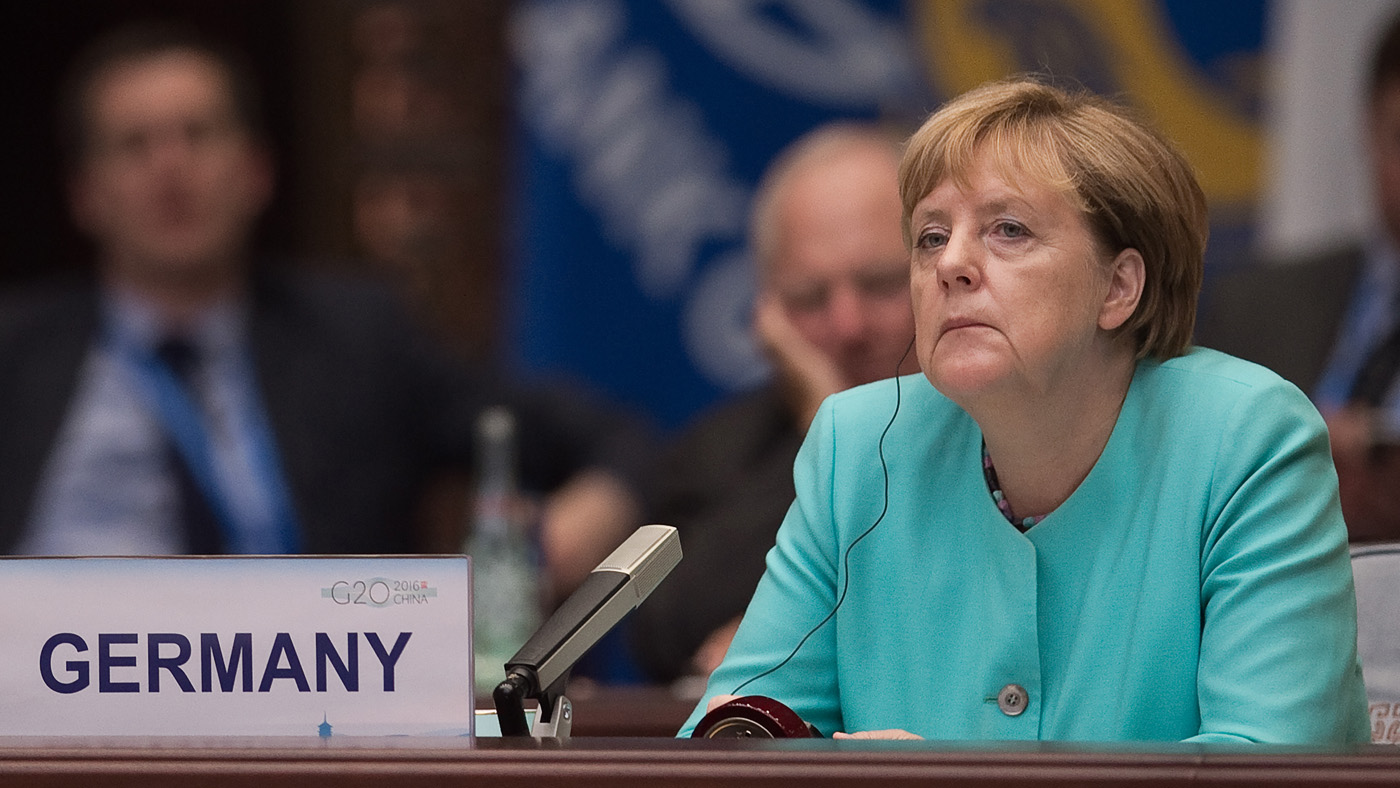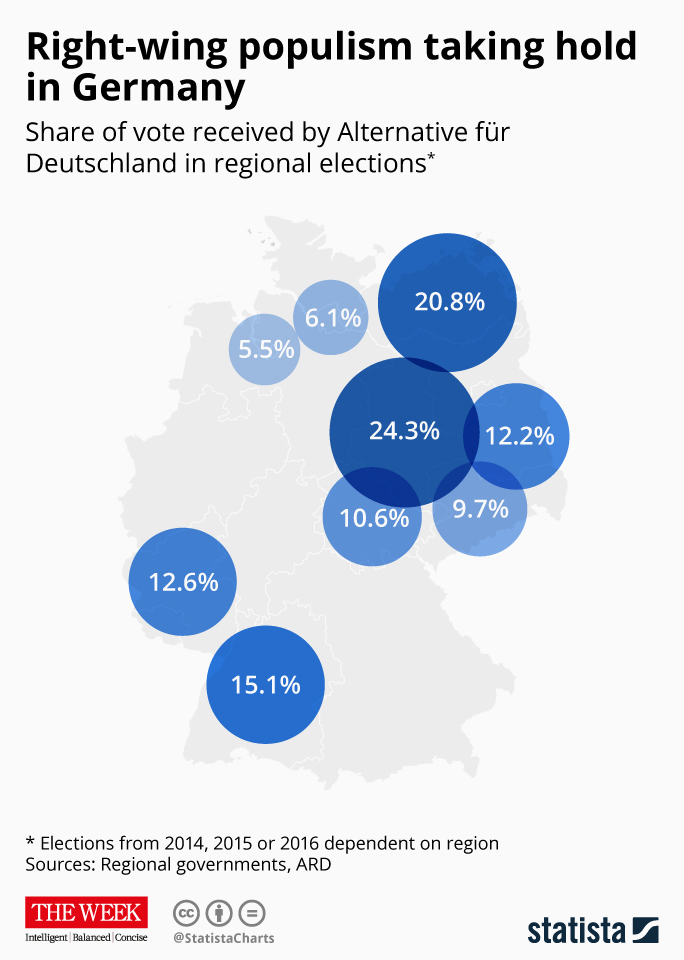Anti-migrant party beats Angela Merkel's CDU party on home turf
Poll is first of five regional votes to take place before Germany's national electon next September

A free daily email with the biggest news stories of the day – and the best features from TheWeek.com
You are now subscribed
Your newsletter sign-up was successful
German chancellor Angela Merkel's Christian Democratic Union (CDU) has been beaten into third place behind the Social Democrats (SPD) and right-wing, anti-migrant party Alternative fur Deutschland (AfD) during regional elections in her constituency of Mecklenburg-Vorpommern.
Projections following yesterday's election showed the SPD comfortably in front with 30.5 per cent of the vote, followed by AfD on 21 per cent and the CDU on 19 per cent.
BBC Berlin correspondent Jenny Hill described the result as "humiliating for Angela Merkel - not least because this was on home turf", calling the election a "significant test ahead of next year's general election".
The Week
Escape your echo chamber. Get the facts behind the news, plus analysis from multiple perspectives.

Sign up for The Week's Free Newsletters
From our morning news briefing to a weekly Good News Newsletter, get the best of The Week delivered directly to your inbox.
From our morning news briefing to a weekly Good News Newsletter, get the best of The Week delivered directly to your inbox.

The election focused very strongly on Germany's current refugee policy, with AfD candidates openly questioning the Merkel government's "open door" approach to the migrant crisis.
The poll - the first of five regional votes due to take place before the national election next September - is largely symbolic, and "will not have a direct impact on the workings of the German government", says The Guardian.
However, AfD candidate Leif-Erik Holm said: "The icing on the cake is that we have left Merkel's CDU behind us. Maybe that is the beginning of the end of Merkel's time as chancellor."
Angela Merkel is currently in China for the G20 summit. The result comes as her approval ratings reportedly hit their lowest point in five years last week.
A free daily email with the biggest news stories of the day – and the best features from TheWeek.com
But what can happen in 12 short months has been shown in AfD's swift upward climb, notes Marcel Fürstenau at Deutsche Welle.
"The other parties must now swallow the bitter pill and treat them as a legitimate opposition party," he says. "Trying to cut them out completely is the wrong way forward. Exercising competent politics, which is more convincing over the long term, is a better way to stop the right-wing populists."
Infographic by www.statista.com for TheWeek.co.uk.
-
 What to know before filing your own taxes for the first time
What to know before filing your own taxes for the first timethe explainer Tackle this financial milestone with confidence
-
 The biggest box office flops of the 21st century
The biggest box office flops of the 21st centuryin depth Unnecessary remakes and turgid, expensive CGI-fests highlight this list of these most notorious box-office losers
-
 The 10 most infamous abductions in modern history
The 10 most infamous abductions in modern historyin depth The taking of Savannah Guthrie’s mother, Nancy, is the latest in a long string of high-profile kidnappings
-
 Switzerland could vote to cap its population
Switzerland could vote to cap its populationUnder the Radar Swiss People’s Party proposes referendum on radical anti-immigration measure to limit residents to 10 million
-
 Epstein files topple law CEO, roil UK government
Epstein files topple law CEO, roil UK governmentSpeed Read Peter Mandelson, Britain’s former ambassador to the US, is caught up in the scandal
-
 Iran and US prepare to meet after skirmishes
Iran and US prepare to meet after skirmishesSpeed Read The incident comes amid heightened tensions in the Middle East
-
 Israel retrieves final hostage’s body from Gaza
Israel retrieves final hostage’s body from GazaSpeed Read The 24-year-old police officer was killed during the initial Hamas attack
-
 China’s Xi targets top general in growing purge
China’s Xi targets top general in growing purgeSpeed Read Zhang Youxia is being investigated over ‘grave violations’ of the law
-
 Panama and Canada are negotiating over a crucial copper mine
Panama and Canada are negotiating over a crucial copper mineIn the Spotlight Panama is set to make a final decision on the mine this summer
-
 Why Greenland’s natural resources are nearly impossible to mine
Why Greenland’s natural resources are nearly impossible to mineThe Explainer The country’s natural landscape makes the task extremely difficult
-
 Iran cuts internet as protests escalate
Iran cuts internet as protests escalateSpeed Reada Government buildings across the country have been set on fire